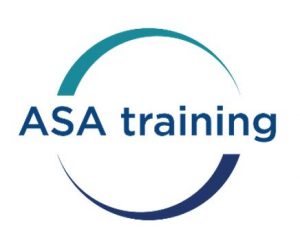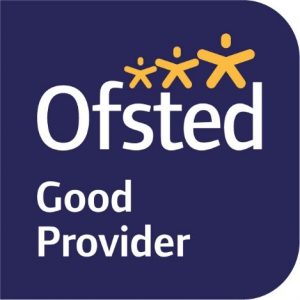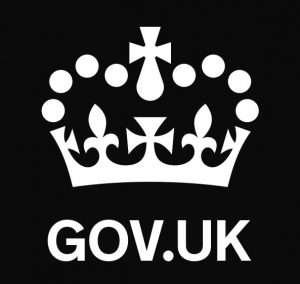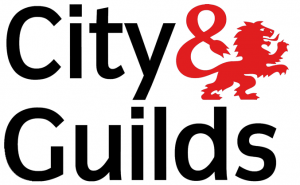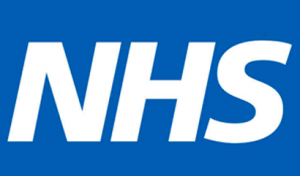This policy is available for staff, learners, employers, witnesses and supporting mentors.
Purpose of the policy
The purpose of this policy is to set out the steps you, your learners or other personnel, follow when reporting suspected or actual cases of malpractice and our responsibilities in dealing with such cases. It is also in place to review those processes which led to the suspected or actual case of malpractice and to support you in any investigations. We will act upon any reports of suspected or actual cases of malpractice we receive about your activities, your personnel or your learners which may affect the integrity of the training programme(s) and quality assurance systems.
We also have a professional responsibility to report non-adherence to the General Dental Council.
Definitions
Malpractice is essentially any activity or practice that deliberately contravenes regulations and compromises the integrity of the assessment process and/or the validity of certificates. For the purpose of this policy this term also covers professional misconduct.
The categories listed below are examples of centre and candidate malpractice. Please note that these examples are not exhaustive and are guidance on our definition of malpractice:
- Forgery of evidence
- Plagiarism of any nature by learners
- Submission of false information to gain a qualification
- Discriminatory, bullying or harassing behaviour
- Unprofessional conduct
- Behaviour likely to endanger the health or safety of the public
- Breach of confidentiality of patients, learners or organisation
- Failure to meet the awarding body or regulator’s requirements
- Falsifying assessment records
Reporting procedure
Anybody identifying cases of malpractice should report them to the Head of Quality & Apprenticeships immediately. We have to investigate all cases of malpractice in liaison with the parties concerned. If an investigation finds evidence of maladministration, we will have to take the necessary steps to ensure that the learners’ interests are protected as far as is reasonably possible. This may include making arrangements for re-assessment. If the investigation reveals that certification is inappropriate we will have to take the necessary steps to revoke the certification in order to protect the health and safety of the public.
Following contact by telephone, you should submit your own report accompanied by supporting evidence. Reports must include:
- The learner’s name
- Staff details (name, job role) if they are involved in the case
- The title of the programme affected or nature of the service affected
- The date(s) suspected or actual malpractice occurred
- The full nature of the suspected or actual malpractice
Post, email or fax your completed report to our Centre Management Team as soon as possible.
- We will acknowledge your report within 5 working days of receipt
- We will arrange for appropriate personnel to review the report and commence the investigation
- We will aim to action and resolve all investigations within 14 working days of receipt of the report
- We will advise you of the outcome of our investigation within 5 working days of making our decision
When we receive your report, we will allocate a panel comprising ASAT Ltd senior personnel and, where appropriate, external advisors such as external verifiers. The panel will review the report and supporting evidence and carry out the investigation.
The investigation process
During the investigation the panel’s review may involve:
- A request for further information
- Interviews (face to face or by telephone) with personnel involved in the investigation
- Arranging for ASAT Ltd staff to carry out a workplace visit
- Informing the Regulatory/Awarding body. Where applicable, we’ll inform the appropriate regulatory authorities of any investigation into suspected or actual cases of serious malpractice and will agree the appropriate course of remedial action with them.
We will make informed decisions based on the evidence.
We will protect the identity of the ‘informant’ as required.
We will also share information with other external parties, as required.
Learner malpractice
If the investigation confirms that learner malpractice has taken place, we may have no alternative but to impose one or more of the following sanctions on the candidate. In cases of Training Dental Nurses this will then be sign posted to the Fitness to Practice process.
Please note that this list is not exhaustive:
- Disallowing all or part of the candidate’s assessment evidence
- Disallowing all or part of the candidate’s external assessment marks
- Not issuing the candidate’s certificate(s)
- Not accepting any further registrations for the candidate
- Disqualification from the programme
In cases of malpractice by learners, final results may be void if the case is proven and any certificates which have already been issued may be deemed to be invalid and will need to be returned to the awarding body.
Plagiarism and Identification of Learners
Plagiarism is defined as submitting as one’s own work, irrespective of intent to deceive, that which derives in part or in its entirety from the work of others without due acknowledgement.
Examples of plagiarism include Copying (using another person’s language and/or ideas as if they are a candidate’s own), by:
- Quoting verbatim another person’s work without due acknowledgement of the source;
- Paraphrasing another person’s work by changing some of the words, or the order of the words, without due acknowledgement of the source;
- Using ideas taken from someone else without reference to the originator;
- Cutting and pasting from the Internet to make a pastiche of online sources;
- Submitting someone else’s work as part of a candidate’s own without identifying clearly who did the work. For example, buying or commissioning work via professional agencies such as ‘essay banks’, or not attributing research contributed by others to a joint project.
Plagiarism might also arise from colluding with another person, including another candidate, other than as permitted for joint project work (i.e. where collaboration is concealed or has been forbidden). A candidate should include a general acknowledgement where he or she has received substantial help, for example with the language and style of a piece of written work.
Plagiarism can occur in respect to all types of sources and media:
- Text, illustrations
- Material downloaded from websites or drawn from manuscripts or other media
- Published and unpublished material, including handouts and other students’ work.
Acceptable means of acknowledging the work of others (by referencing, in footnotes, or otherwise) vary according to the subject matter and mode of assessment.
Failure to conform to the expected standards (e.g. by not referencing sources) in examinations may affect the mark given to the candidate’s work. In addition, suspected cases of the use of unfair means (of which plagiarism is one form) will be investigated and may be brought to the attention of the awarding body and any other professional bodies deemed necessary.
All learners undertaking exams either written or online will be asked to produce a valid form of Identification. This can either be your passport or driving licence. Failure to produce this identification will mean that you will be turned away from the exam and asked to attend on another day with the required documentation.
Links to GDC Fitness to Practice
According to the updated “Student Professionalism and Fitness to Practice” 2024 document, all learners are required to adhere to the GDC standards of professionalism. This covers “Dishonesty or fraud which might include dishonesty in relation to your training, such as cheating and plagiarism”.
Please ensure that you are fully aware of the requirements under the “Student Professionalism and Fitness to Practice”, link below;
Sanctions for non-compliance include:
- Verbal Warning or Written Warning
- Conditions for Improvement & Expectation
- Undertakings/Restrictions to Clinical Practice
- Suspension
- Dismissal
The use of Artificial Intelligence (AI), is strictly prohibited, as per our separate AI policy.
This policy is available for staff, learners, employers, witnesses and supporting mentors. It is the responsibility of anyone involved in the training of all learners to report any instance of plagiarism or use of AI. Please follow the procedure below if you believe a learner is cheating or plagiarising within the evidence that they are submitting towards their qualification.
For any enquiries relating to this policy/procedure, please contact our Head of Quality & Apprenticeships on; claire@asatraining.co.uk

